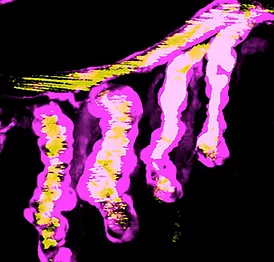Burns Lab | Overview

Cardiovascular diseases represent the number one cause of morbidity and mortality worldwide, affecting a broad spectrum of ages from babies that are born with congenital heart defects to adults that suffer acute myocardial infractions and/or develop congestive heart failure over time. Our research program is motivated by the simple assumption that we can use the zebrafish as a model organism to understand how the cardiovascular system is established during development and how it efficiently regenerates following injury during adulthood.
Current projects in the Burns Lab include:
- Heart Development
- Cardiovascular Progenitor Cell Biology
- Heart Function
- Pharyngeal Arch Artery (PAA) Development
- Pathways Regulating PAA Development
- Modeling Great Vessel CHDs
- Progenitor Heterogeneity
- Heart Regeneration
- Barriers to Cardiomyocyte Proliferation
- Epigenetic Control of Heart Regeneration
- Genetic Control of Heart Regeneration

Caroline Burns
Associate Professor of Pediatrics, Harvard Medical School
Department of Cardiology, Boston Children’s Hospital
Contact: Caroline.Burns@childrens.harvard.edu

Geoff Burns
Assistant Professor of Pediatrics, Harvard Medical School
Department of Cardiology, Boston Children’s Hospital
Contact: Geoff.Burns@childrens.harvard.edu
